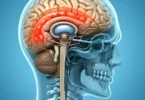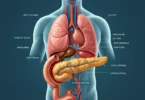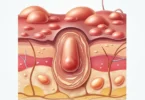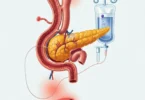The basic pillars of breast cancer treatments are:
- Surgery
- Radiation therapy (radiotherapy)
- Drug therapy (chemotherapy, hormone therapy)
- Targeted therapy
- Immunotherapy
Surgery
Surgery is the most common treatment for breast cancer. There are several types of operations:
Radiation Therapy (radiotherapy)
The aim of radiation therapy is to destroy any existing microscopic residual tumor. Before or after breast conserving surgery a radiotherapy is carried out. Before surgery it is used to reduce the size of tumor and after surgery it is used to destroy the remaining tumor cells. Even after mastectomy radiation therapymay be prove useful, especially when the chest muscle or the lymph nodes are affected in the area of the sternum.
Irradiation is planned individually for each patient. It is well tolerated in general. Occasionally, side effects such as fatigue, sunburn-like reddening of the skin or superficial skin lesions regress again after treatment. Rarely transient nausea is reported. Late effects of radiation such as hardening of the breast tissue or skin discoloration are rare today because of use of advance techniques.
Drug Therapy (chemotherapy, hormone therapy)
Today’s drug therapy is primarily based on whether the breast cancer is influenced by the female hormones (estrogen and progesterone) or not. But the age of the patient, menopausal status, tumor size, lymph node involvement in the armpit, stage of disease and various other factors influence the choice of treatment.
Chemotherapy
In the chemotherapy drugs are used to kill cancer cells. Chemotherapy for breast cancer usually consists of a combination of drugs that are administered as tablets or injection or infusion into a vein (intravenously). In both ways, the drug enters the bloodstream and are transported throughout the body. In most cases, chemotherapy is performed in a hospital outpatient clinic, a doctor’s office or at home. However, some women have to stay in the hospital during chemotherapy.
Hormone Therapy
The hormone therapy prevents cancer cells from getting the natural hormones (estrogen and progesterone), which they need for their growth. If lab tests show that the breast tumor has hormone receptors in the female than hormone therapy can be performed. Like chemotherapy, hormone therapy may act on cells throughout the body. Hormone therapy can be done by taking a drug or by a surgical procedure:
Medicine: The doctor prescribes a drug that affects the effect of natural hormones or the body’s production of natural hormones. An example is Tamoxifen, which inhibits the effect of natural estrogen. Another type of medication (aromatase inhibitor) prevents synthesis of the female the body hormone estradiol, a form of estrogen. Another option is release of Central hormone (gonadotropin hormone). They enable the patient temporarily in a state with no female hormones, such as after menopause.
Operation: When a woman has not yet menopause behind them, an operation can be performed to remove the ovaries. The ovaries are the main producer of the body’s own estrogen. After menopause, hormone production in the ovary naturally decreases, so that no operation is required.
Targeted Therapy
Targeted therapy is a new treatment strategy. The active compounds are used which very specifically kill only the cancer cells and, in contrast to chemotherapy have little or no effect on healthy cells.
- Trastuzumab blocks messengers in the body that promote the growth of breast cancer cells.
- Lapatinib inhibits the transmission of growth signals within the cells.
- Bevacizumab blocks the blood supply to the tumor. In the US, there is no longer approved as a drug against breast cancer. In Europe, there will continue to be applied.
Immunotherapy
In case of immunotherapy (also biological therapy) the body’s defense system (immune system) is used to combat cancer. Some women with metastatic breast cancer received immunotherapy with monoclonal antibody (trastuzumab), a substance produced in the laboratory, which can bind to cancer cells. Trastuzumab is administered to women if laboratory tests have shown that the breast tumor contains an excessive amount of a particular protein produced by HER2. Trastuzumab can slow or stop the growth of cancer cells. Trastuzumab is injected into a vein. It can be administered alone or in combination with chemotherapy. As chemotherapy and hormone therapy can affect cancer cells throughout the body.
For more general information:






